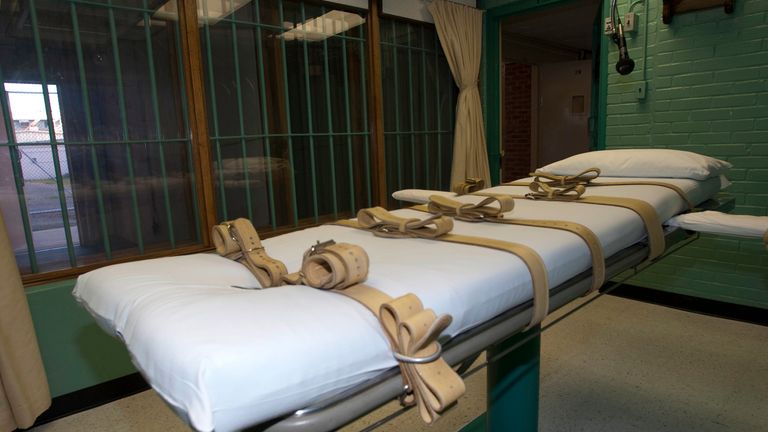Firing squad and electric chair executions are ‘torture’, US judge rules
A US judge has ruled carrying out executions by electric chair or firing squad are unconstitutional and amount to “torture”.

A US judge has ruled carrying out executions by electric chair or firing squad are unconstitutional and amount to “torture”.
Lawyers for four inmates in South Carolina who took legal action against the state, had argued prisoners would feel terrible pain whether their bodies were “cooking” by electricity or when their heart was stopped by a marksman’s bullet – assuming they are on target.
And on Tuesday, Judge Jocelyn Newman ruled that both the state’s newly-created firing squad and its use of the electric chair should desist.
The state’s governor, Republican Henry McMaster, said he planned to appeal her decision.
From 1995 to 2011 – when the state’s last execution was performed – South Carolina carried out the death penalty with lethal injections on 36 prisoners.
But, as the state’s supply of lethal injection drugs expired in 2013, an involuntary pause in executions resulted from pharmaceutical companies’ refusal to sell the state more.
Condemned inmates technically had the choice between injection and electrocution, meaning that opting for the former would in essence leave the state unable to carry out the sentence.
Execution ‘ought to be humane’
Struggling to implement new execution protocols, prison officials sought help from state lawmakers, who for several years had considered adding the firing squad as an option to approved methods, but debate on it never advanced.
Last year, Democratic Senator Dick Harpootlian and Republican Senator Greg Hembree, both of whom previously served as prosecutors, again argued in favour of adding the firing squad option.
“The death penalty is going to stay the law here for a while. If it is going to remain, it ought to be humane,” Mr Harpootlian had said.
During last month’s hearing before Judge Newman, lawyers representing the state provided evidence from their experts who appeared to agree with them, and said death by the yet-to-be-used firing squad or the rarely used electric chair would be instantaneous and the condemned would not feel any pain.
The ultimately approved measure, signed into law by Mr McMaster last year, made South Carolina the fourth state in the United States to allow use of a firing squad, and made the state’s electric chair – built in 1912 – the default method for executions, thereby giving prisoners a new choice.
The South Carolina Supreme Court subsequently blocked the planned executions of two inmates by electrocution, however, saying they could not be put to death until they truly had the choice of a firing squad option set out in the state’s newly revised law.
Ammunition ‘splits up in the heart’
Earlier this year, the state rolled out its updated execution protocols, to include the new method.
During last month’s trial, a Corrections Department official said he devised the firing squad protocols after consulting a prison official in Utah, the location of the only three inmates to die by firing squad since 1977.
Colie Rushton, the department’s security director, testified the .308 Winchester ammunition to be used is designed to fragment and split up in the heart to make death as fast as possible.
In her ruling, Judge Newman recalled the testimony of two physicians, who said an inmate “is likely to be conscious for a minimum of ten seconds after impact”.
Read more:
Prisoner chooses firing squad over electric chair
During that time, the judge wrote, “he will feel excruciating pain resulting from the gunshot wounds and broken bones,” a sensation that “constitutes torture” as it is “exacerbated by any movement he makes, such as flinching or breathing”.
Dr Jonathan Arden testified the electric chair caused “effects on parts of the body, including internal organs, that are the equivalent of cooking”.
Just three prisoners in South Carolina have chosen the electric chair since lethal injection was made available in 1995.
Officials with the state Corrections Department told the Associated Press they were “assessing the ruling”.


